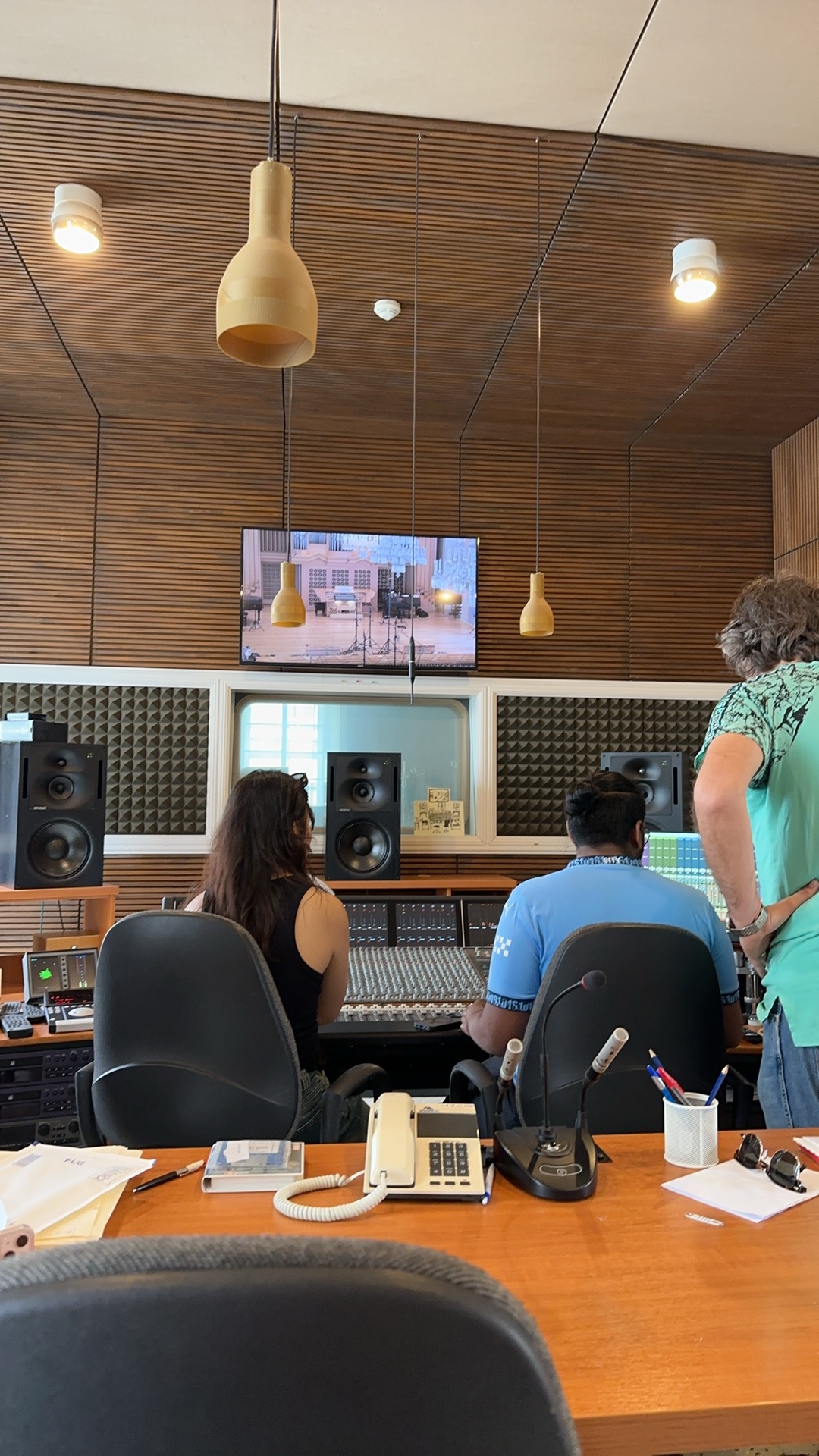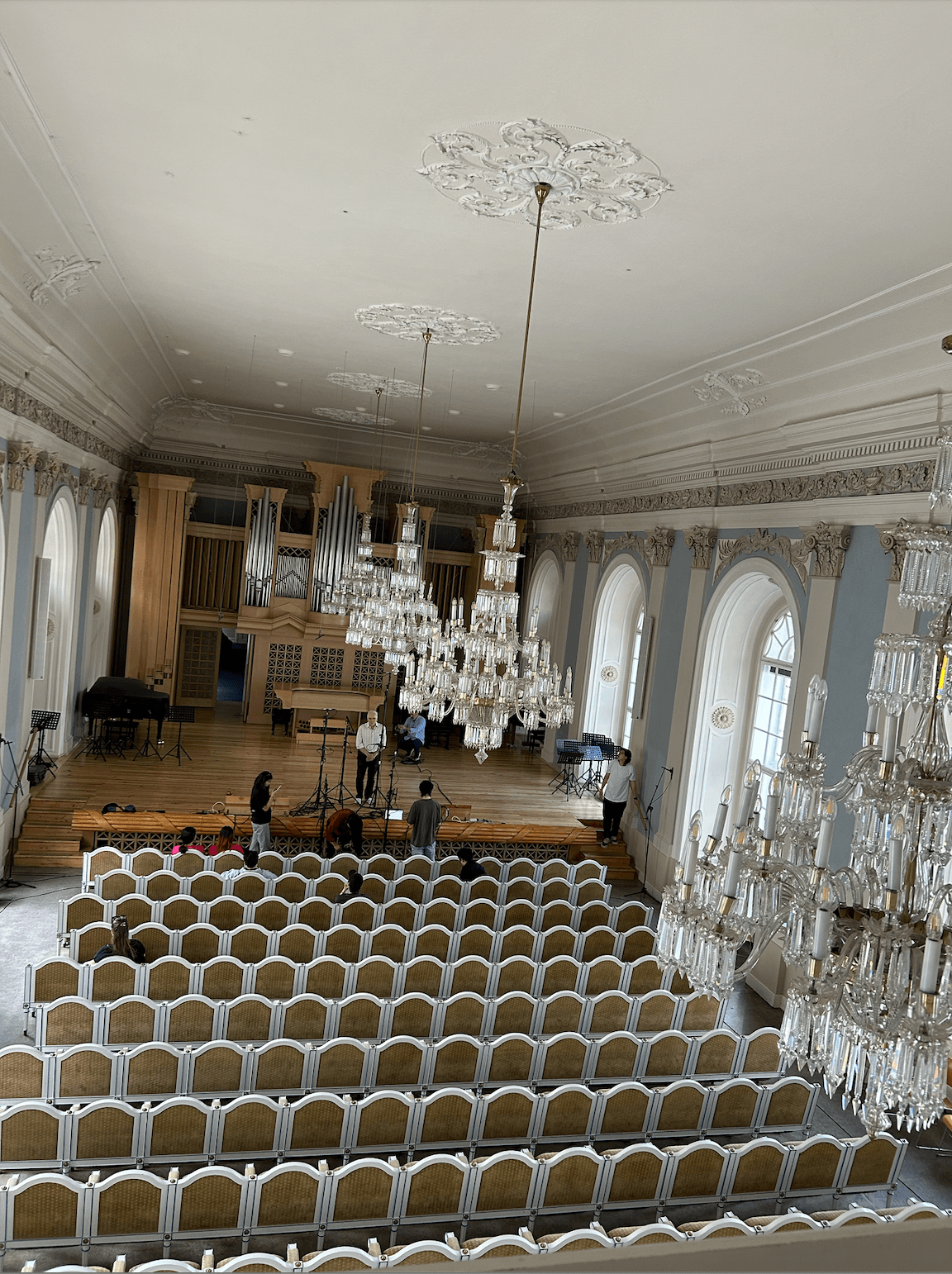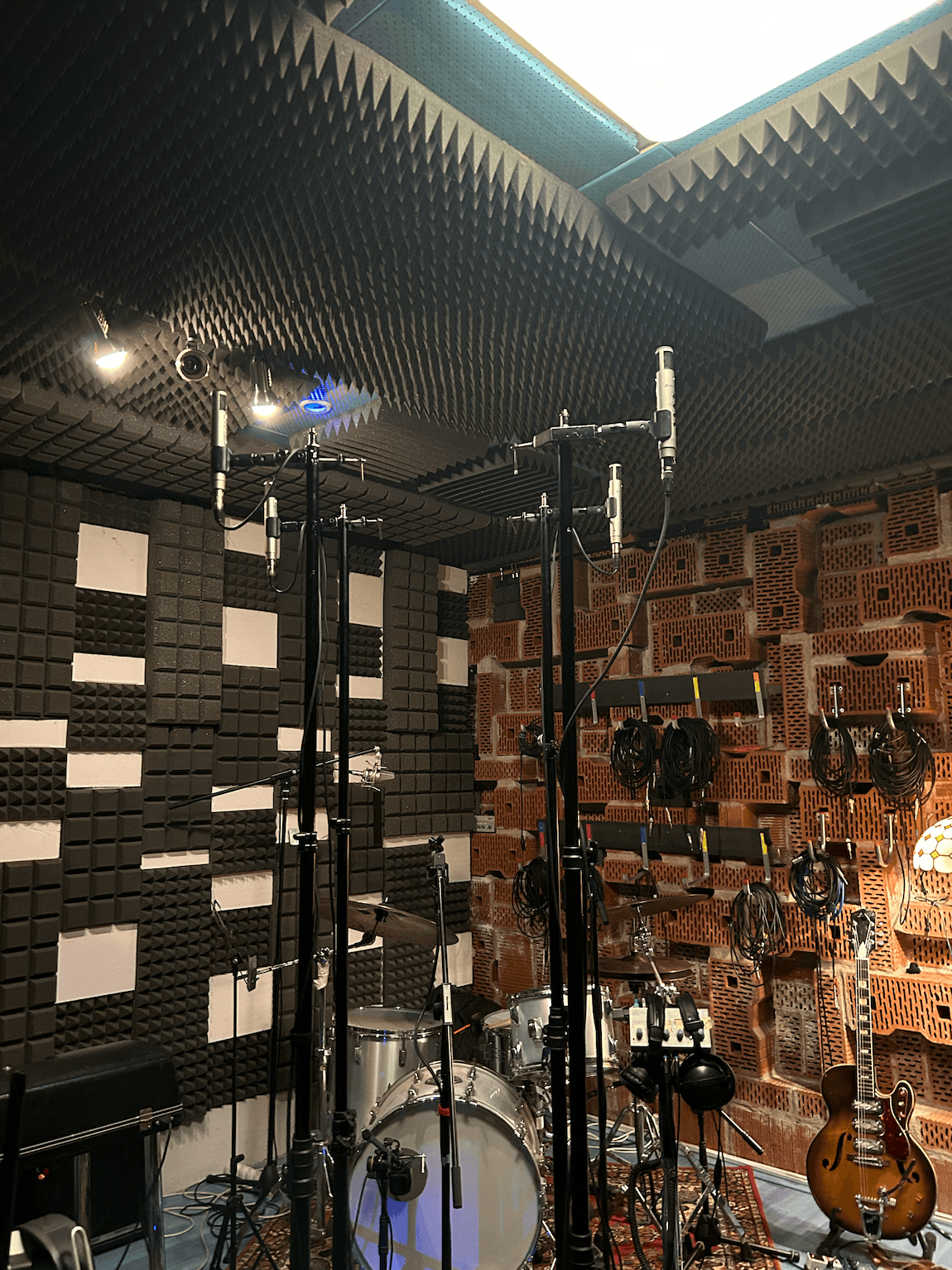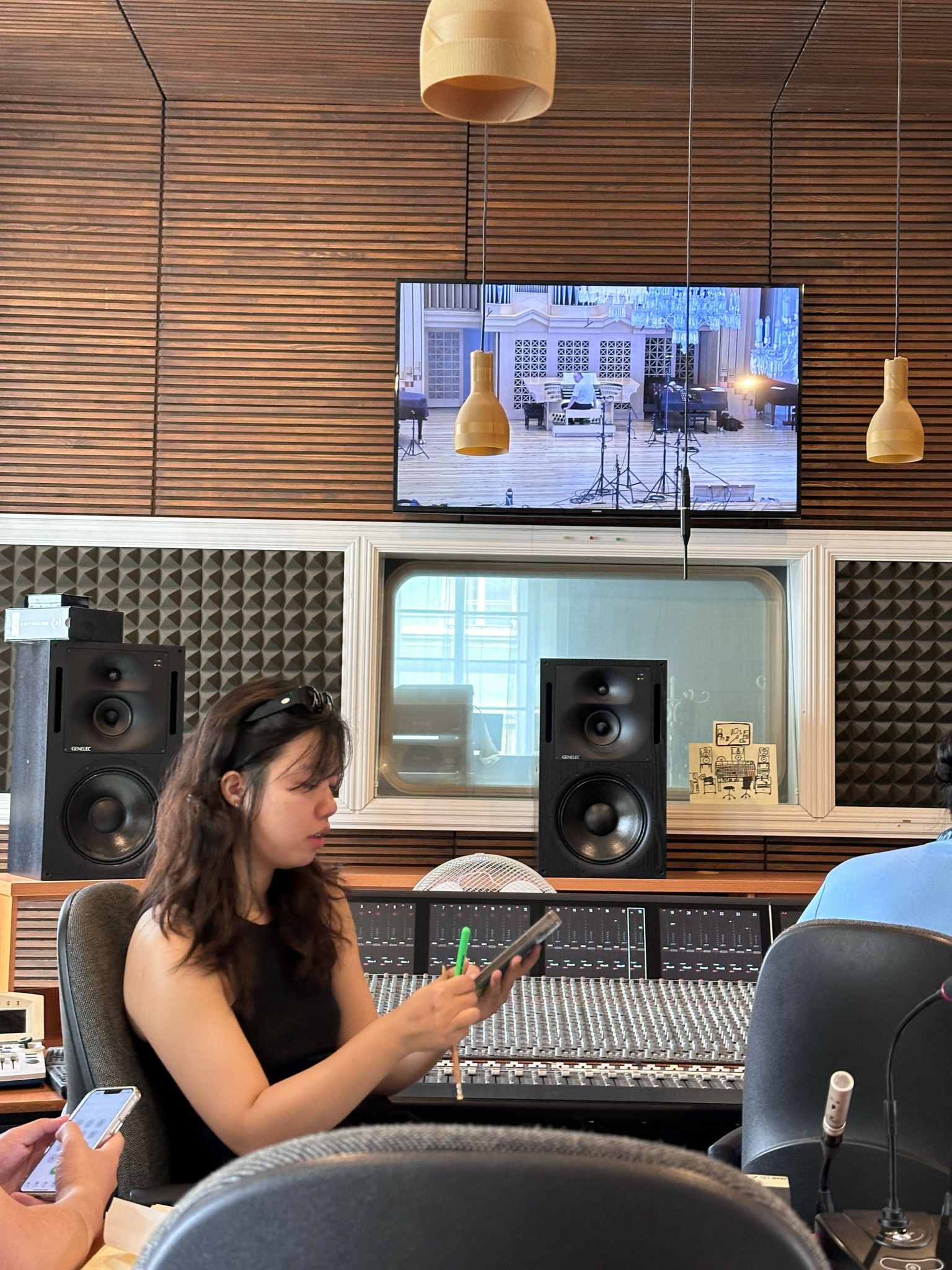Today we’d like to introduce you to Baolu Chen.
Hi Baolu, so excited to have you on the platform. So before we get into questions about your work-life, maybe you can bring our readers up to speed on your story and how you got to where you are today?
Growing up in a small town in China, the only music profession I had ever heard of was that of my Guzheng and piano teacher. I didn’t realize that music production could be a career because the people around me believed that being a musician meant playing an instrument on stage. However, things changed during one of my Guzheng classes when my teacher introduced a music theory session. He asked us—a group of eight-year-olds—to write a four-bar melody. When it was my turn to write on the blackboard, I ended up composing 16 bars non-stop because I found it so fun. That was the first time I realized I had an interest in composition rather than performance.
I began to consider the idea of going to music college and becoming a professional musician. However, this was a troubling thought for my parents because, in their eyes, music was what I had explained earlier: an unstable career. At that time, there were no well-known female producers in China, so it was hard for them to understand how someone could make a living by writing music. Without their support, I had to set aside my plan to attend music college and instead enrolled at Brandeis University, a liberal arts college where I could freely choose my curriculum and decide on a major later.
After three years of studying there and supplementing my knowledge of jazz music theory, I realized I couldn’t let go of my dream of writing music. This strong desire led me to transfer to Berklee College of Music, where I majored in Contemporary Writing and Production.
I should have been happy enough, finally being on my dream path of studying music. But I quickly noticed something troubling. In school, I was the only woman in several of my music technology classes. When I interned at a studio in Boston, I was one of the few women present in recording sessions. While working in stage crew—where students ran sound and lights for school concerts—the male students were automatically assigned to the soundboard, while the female students were given the light board. Everyone unconsciously assumed that mixing live sound was more “technical” and therefore “better suited” for men.
Although gender inequality has been widely discussed and researched in recent decades, the music industry hasn’t changed much. According to the 2023 annual report on the music industry by USC Annenberg, Inclusion in the Recording Studio, 94.8% of songs that reached the Billboard Hot 100 Year-End Charts over seven years had no female producers credited. In terms of artists, 76.6% were men, and only 22.3% were women.
As a female producer, my plan is to help change these statistics and contribute an often unheard voice to the music production world. Some steps I plan to take include collaborating with more female and non-binary individuals in the industry to uplift and create opportunities for each other. Secondly, I plan to speak out and stand up for myself and others when facing harassment in the classroom or workplace. If no one ever points out what is wrong, the injustice will never be recognized by those in power. Third, I will continue to be professional and skilled at my craft. It’s an unfortunate fact that minorities often have to prove themselves more than their male counterparts. To ensure our voices are heard, each of us must make a greater effort. But I believe that through these small actions—taken every day by myself and my fellow female musicians—gender inequality in the industry will gradually lessen.
It took me six years to complete my undergraduate degree, and my journey is far from over. I sincerely want to pursue more knowledge in this field I am so passionate about and help create a healthier environment for everyone in the music industry. I believe having more women in music production will create a domino effect, inspiring future generations and amplifying the voices of women in music.
Currently, I’m pursuing my master’s degree in Music Technology at NYU, where I’m focusing on immersive audio production and arts-based research. I’m composing original music while exploring innovative spatial audio formats like Ambisonics. Through my work, I want to bridge the gap between innovative immersive technology and mainstream pop music releases, exploring how spatial audio can enhance the listening experience for a wider audience.
There are still very few mainstream female music producers in China, and no woman has yet won Producer of the Year (Non-Classical) at the Grammys. It’s my goal to build a talented network of women and work towards changing these gender statistics by consistently creating great work. I hope to achieve success as a Chinese female music producer not only for myself but also to inspire young girls who don’t yet see themselves represented in the music industry. One day, I hope a little girl growing up in a small town can pursue her dream of becoming a music producer without prejudice or concerns from others.
Alright, so let’s dig a little deeper into the story – has it been an easy path overall and if not, what were the challenges you’ve had to overcome?
It hasn’t been a smooth road. As a woman in the music industry, I’ve faced gender inequality in both academic and professional settings. As I mentioned, in my music technology classes, I was often one of the few women, and during my studio internships and stage crew work, I noticed a clear gender divide—men were automatically assigned more “technical” roles like sound mixing, while women were given tasks perceived as less technical, like managing lights. This unconscious bias reflects a broader industry issue, where women are underrepresented in production roles. Despite growing conversations around gender inequality, change has been slow, and female producers still face the challenge of constantly having to prove their skills in a male-dominated field. These experiences have fueled my determination to not only excel in my craft but also advocate for greater inclusivity in the industry.
Alright, so let’s switch gears a bit and talk business. What should we know about your work?
I’m a music producer and composer specializing in both stereo and immersive audio production. My work spans a variety of styles, from EDM to string quartets, but I’m particularly passionate about integrating traditional Asian influences with contemporary music to craft fresh, innovative sounds. Recently, I’ve been focusing on immersive audio formats like Ambisonics, exploring how spatial technology can enhance the listening experience in genres like hip-hop and pop music.
One of my proudest moments was remixing a track called Better Off in Ambisonics format and presenting it through a 50-speaker setup at the NYU Audio Lab. That project not only pushed my technical skills but also deepened my understanding of spatial audio’s creative potential. I’ve also had the honor of writing cues for TV shows like 90 Day Fiancé, which helped me develop a strong sense of storytelling through music.
We’d be interested to hear your thoughts on luck and what role, if any, you feel it’s played for you?
I believe luck has played an important role in my journey, especially in the people I’ve met along the way. I’ve been fortunate to find mentors and friends who not only inspire me but also challenge and support me in this music journey. This has been especially valuable right after college, when stepping into the industry felt overwhelming, and we were all figuring things out together. Having a strong, supportive network made a huge difference—sharing experiences, learning from each other’s successes and failures, and growing both personally and professionally.
That said, it’s not just about luck—it also takes courage and awareness to recognize when certain people or situations aren’t good for you. The music industry can be tough, and filtering out negativity or untrustworthy individuals requires both skill and confidence. Finding the right people is a mix of luck and being able to trust your instincts. While talent and hard work are essential, I think being surrounded by the right people at the right time—and knowing when to walk away from the wrong ones—has been one of the most important parts of my career.
Contact Info:
- Instagram: @baoluccc
- Soundcloud: https://soundcloud.com/nonacbl






